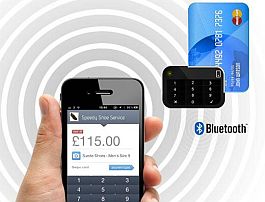Baltic States – CIS, EU – Baltic States, Financial Services, Forum, Markets and Companies, Technology, Telecomunications
International Internet Magazine. Baltic States news & analytics
Tuesday, 03.02.2026, 17:59
Mobile payment is revolutionising the retail world
 Print version
Print version |
|---|
Mobile
payment innovator “mPowa” is the heading company is such growth; the company is
expanding its global footprint with a number of contracts around the world with
high profile organisations like Portugal Telecomm Group and First National Bank
in South Africa. mPowa mobile payment solution is on the verge of further major
success with other parts of the world.
He outlined how the traditional point of sale is becoming more mobile and how in response mPowa, the first tool to make commerce fully mobile, has enabled mobile devices to take payments anywhere. With mPowa it is easy simply to insert a credit card into a compact card reader, which then communicates with a mobile device via Bluetooth, enabling merchants to accept payments on the move.
Feature of retail payment
The vision of the future of retail is going to change: the consumer’s relationship with and perception of money has changed. The connection can be anywhere, anytime and is received, delivered and transacted through multiple venues, mechanisms and devices. Now it is trust not gold that governs ‘money’, sounds the main message from the conference.
The principle is simple: making payment easier customers are less likely to leave a store without making a purchase if they can easily use their favoured credit or debit card. The figures for loss of revenue through payment channels being unavailable or not used in a particular retailer make sobering reading, so the idea of making the process easier still with mobile payment using smartphones and tablets will be another step change.
“Connected consumerism”
Digital experiences have created a new age of ‘connected consumerism’: buy online, pick up in store; buy in store and pay days later with a choice of multiple payment methods.
And the store experience is changing too. The ‘checkout’ process can occur anywhere – in the aisle or at home. As a result, mobile payments will challenge and redefine long-standing assumptions on store design with an emphasis on product interaction.
They will
also drive retailers to learn new ways to connect brands with consumers:
geo-fencing, mobile checkout, augmented
reality, virtual try-on and other techniques will come to the fore. This will
offer real-time insight-driven shopping and financial tools to the consumer and
will spell the end of the uninformed passive shopper.
There though is a warning: user adoption requires trust, interoperability of platforms, security, privacy and government regulation. Mobile payments must be at least as secure as using credit cards and cash today.
Experts say that with mPowa, they are more secure and more productive than cash.








 «The Baltic Course» Is Sold and Stays in Business!
«The Baltic Course» Is Sold and Stays in Business!

